Embracing the Dusk of the Pandemic and the Dawn of the Low Carbon Economy in 2021
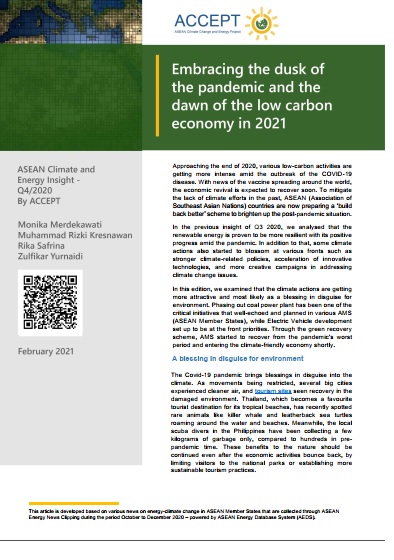
Energy Efficiency as the Industry’s Way to Survive the Covid-19 Crisis
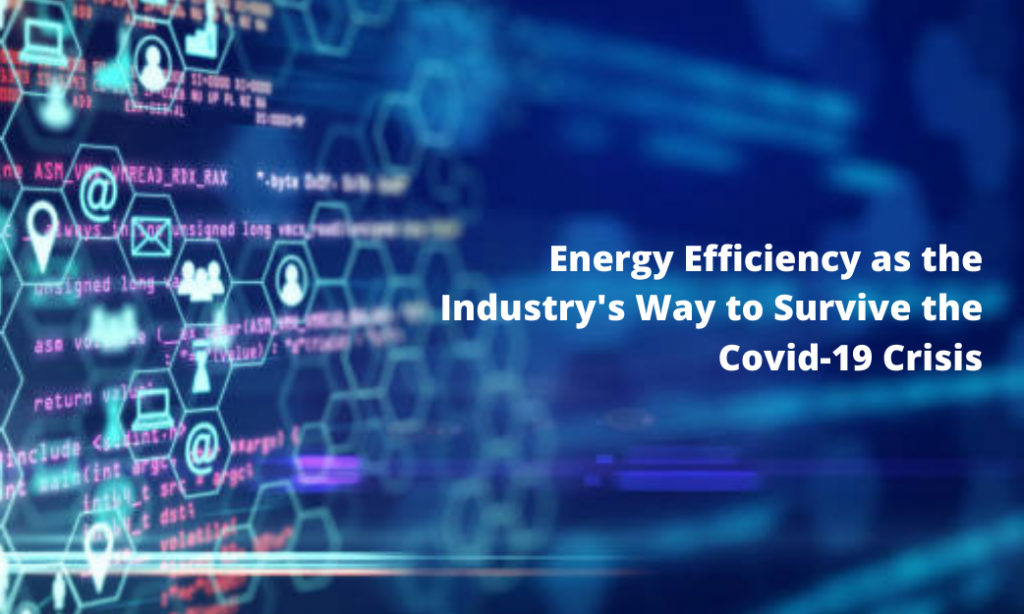
Since the emergence of the Covid-19 outbreak, countries around the world are still trying to cope and minimise its impact on the industry sector. Physical distancing and working from the home scheme have naturally affected many companies and the way they operate. To ease the pandemic impact, practicing the energy efficiency and conservation (EE&C) measures could be considered by the industries.
The Power of Social Media to Fight Climate Change

Climate change remains a looming humanity issue because of how complicated and unintegrated the actions are. In 2015, when the world leaders collectively adopted the Paris Climate Accord, it seemed the world was together in fighting the inevitable enemy facing our next generation: climate catastrophe. But, five years later, it looks like we are far from rounding the corner of the “2oC” target.
ACCEPT 2020 Year in Review
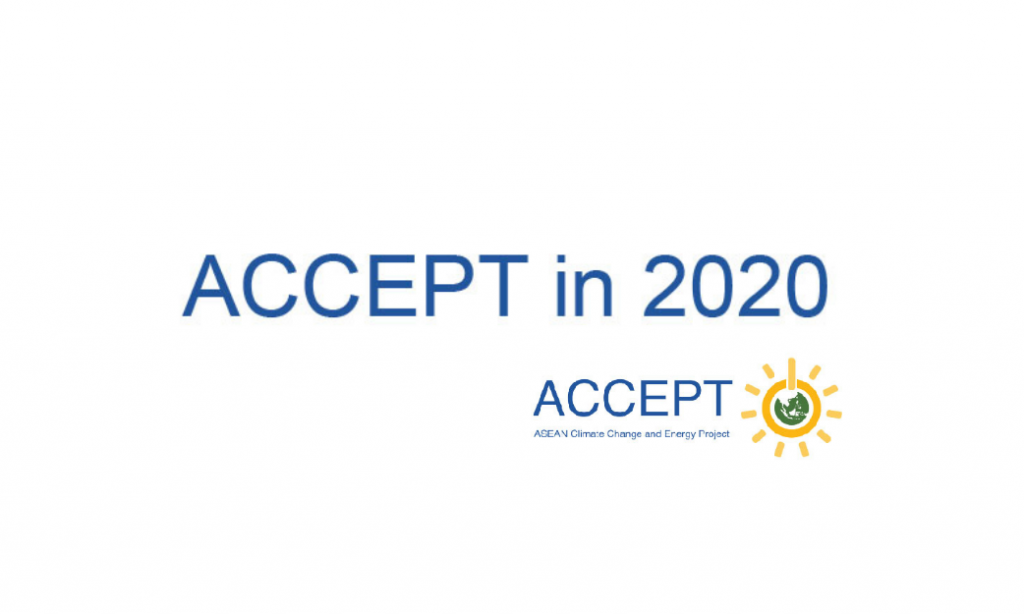
A challenging and historical year has passed, as people persevered and embraced the changes brought by the COVID-19 pandemic. ASEAN Climate Change and Energy Project (ACCEPT) is not an exception. We struggled to cope and adapt, optimizing online events, and collaborative efforts to advance our work on pursuing climate-friendly energy development in the region.
The ASEAN Climate and Energy Paradox
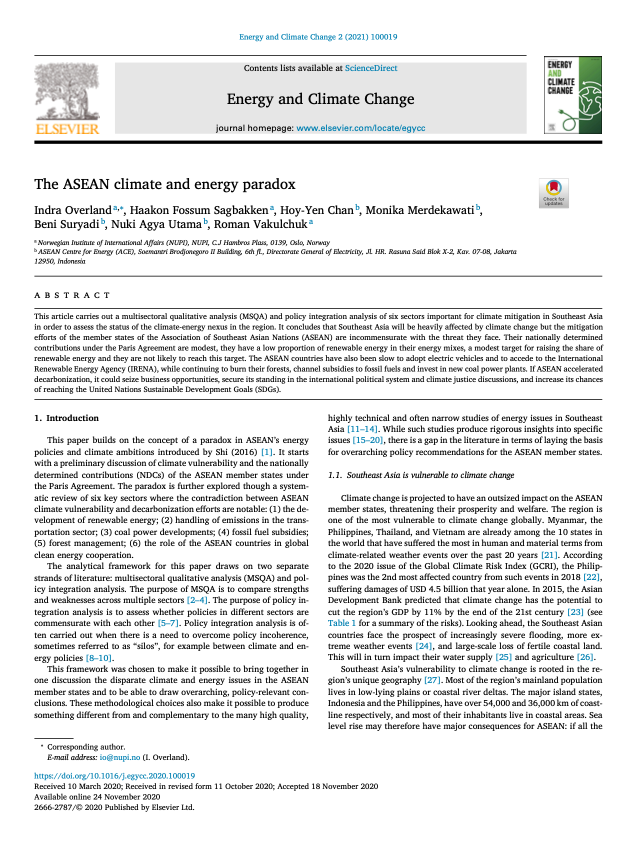
This article carries out a multisectoral qualitative analysis (MSQA) and policy integration analysis of six sectors important for climate mitigation in Southeast Asia in order to assess the status of the climate-energy nexus in the region. It concludes that Southeast Asia will be heavily affected by climate change but the mitigation efforts of the member states of the Association of Southeast Asian Nations (ASEAN) are incommensurate with the threat they face. Their nationally determined contributions under the Paris Agreement are modest, they have a low proportion of renewable energy in their energy mixes, a modest target for raising the share of renewable energy and they are not likely to reach this target. The ASEAN countries have also been slow to adopt electric vehicles and to accede to the International Renewable Energy Agency (IRENA), while continuing to burn their forests, channel subsidies to fossil fuels and invest in new coal power plants. If ASEAN accelerated decarbonization, it could seize business opportunities, secure its standing in the international political system and climate justice discussions, and increase its chances of reaching the United Nations Sustainable Development Goals (SDGs).
How Creative Industry Increases People’s Awareness on Climate Change
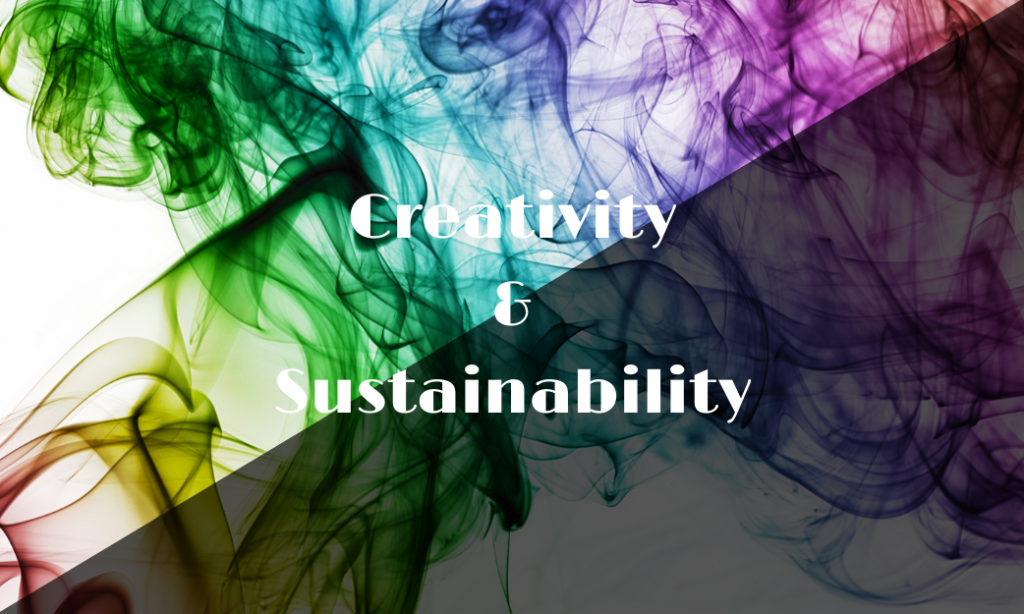
Climate issues are often described by researchers in an abstract and impersonal way. Most people would end up considering it as a distant problem, both in time and place. If this continues, it would be a disaster since climate change mitigation efforts are something that we need to work on collectively.
COVID-19 vs ASEAN Energy Sector: Oil & Gas (Q3)
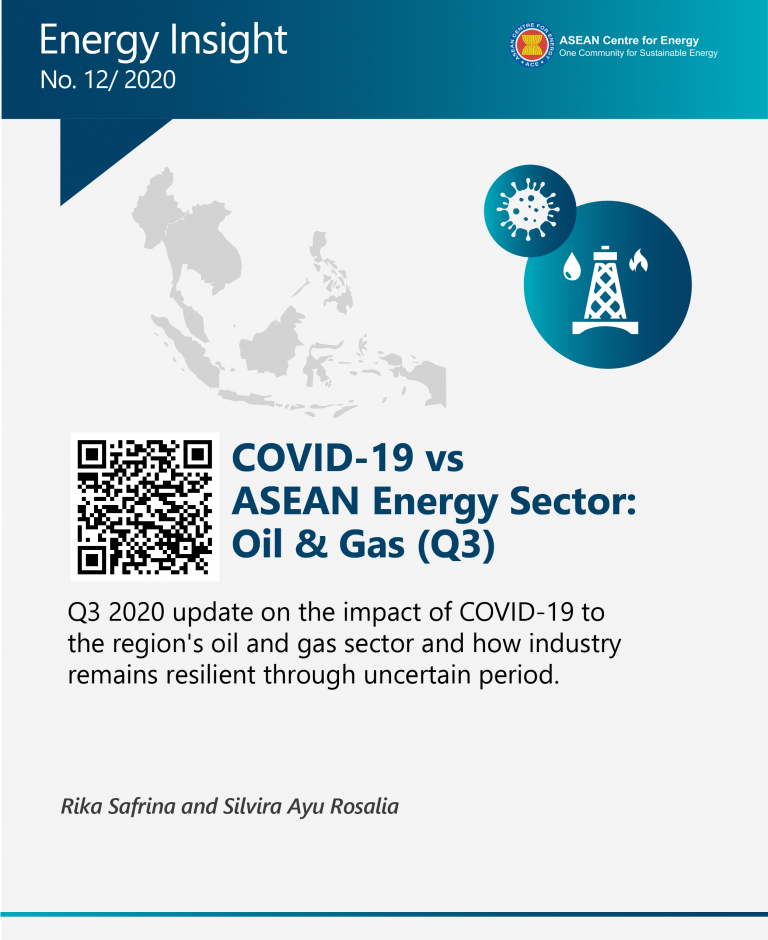
Uncertainty outlook as the impact of weakening oil market is still making oil and gas industries suffered since the pandemic outbreak in early 2020. The industries must be able to adapt and implement mitigation actions to preserve and curtail from bigger business losses. The efforts could be operational and capital cost-cutting and shaping portfolio to integrate cleaner energy fuel in maintaining revenue and energy security.
COVID-19 vs ASEAN Energy Sector: Renewables (Q3)
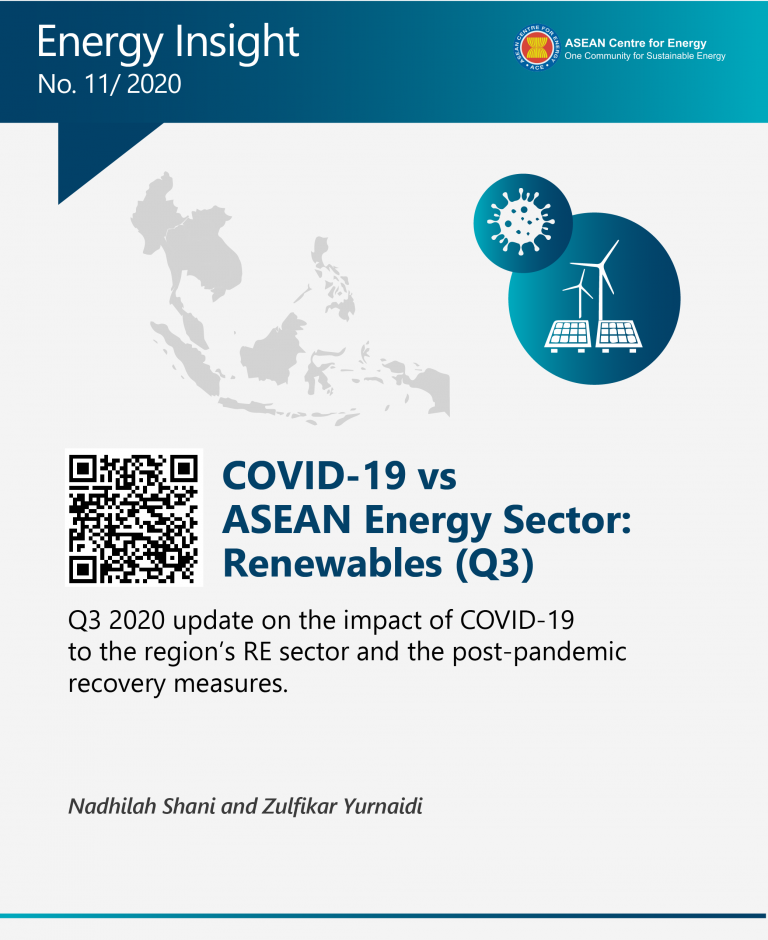
Resiliency is shown by ASEAN RE projects in the second half of 2020 despite the lingering trace of the pandemic in the energy sector. While the idea of ‘build back better’ is echoed by most countries in the region, its optimal implementation remains uncertain. However, ASEAN Member States keep focusing on putting efforts to invite investment on renewables and begin resuming the work that was halted, aiming for the long-term green recovery ahead. Renewable is expected to make strong come-back when the economy rebounds.











